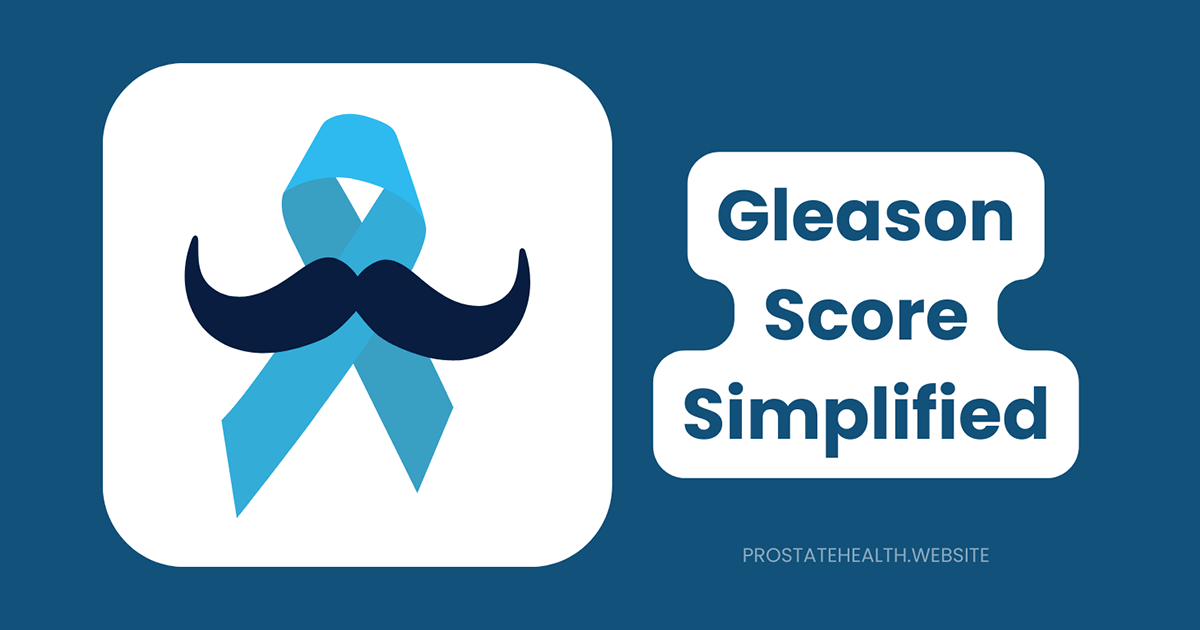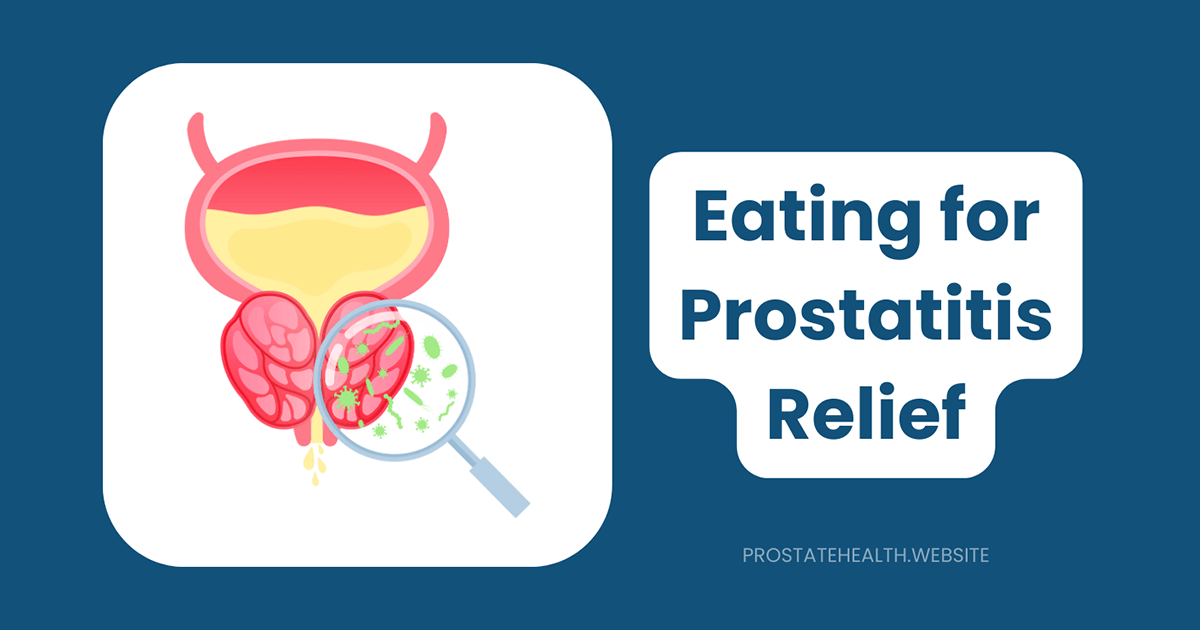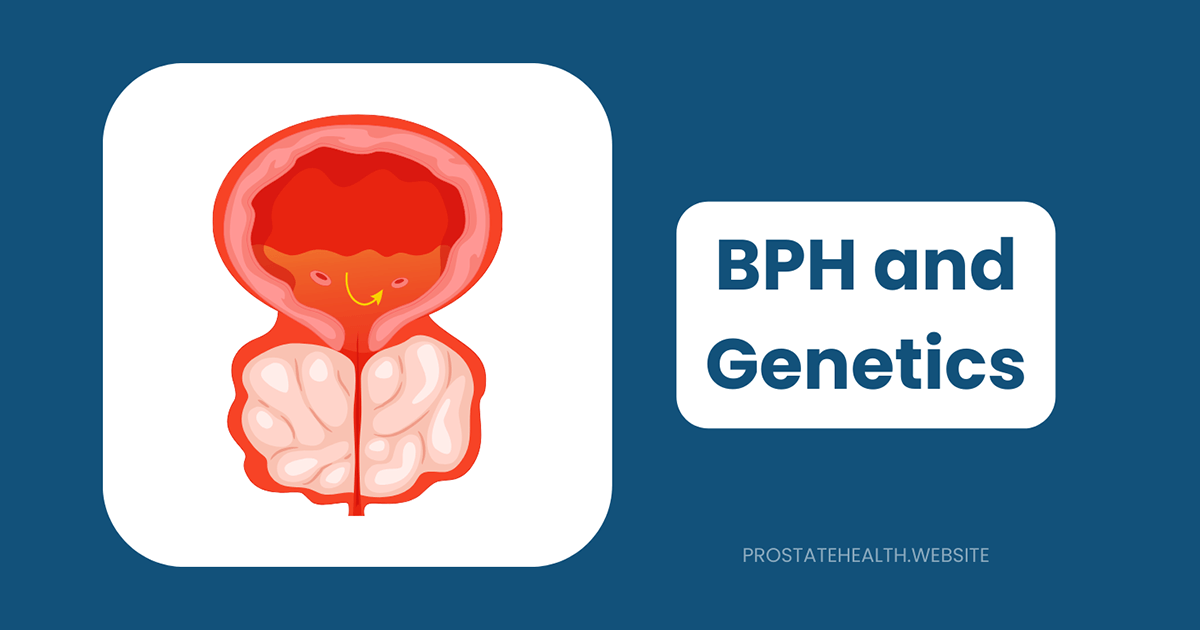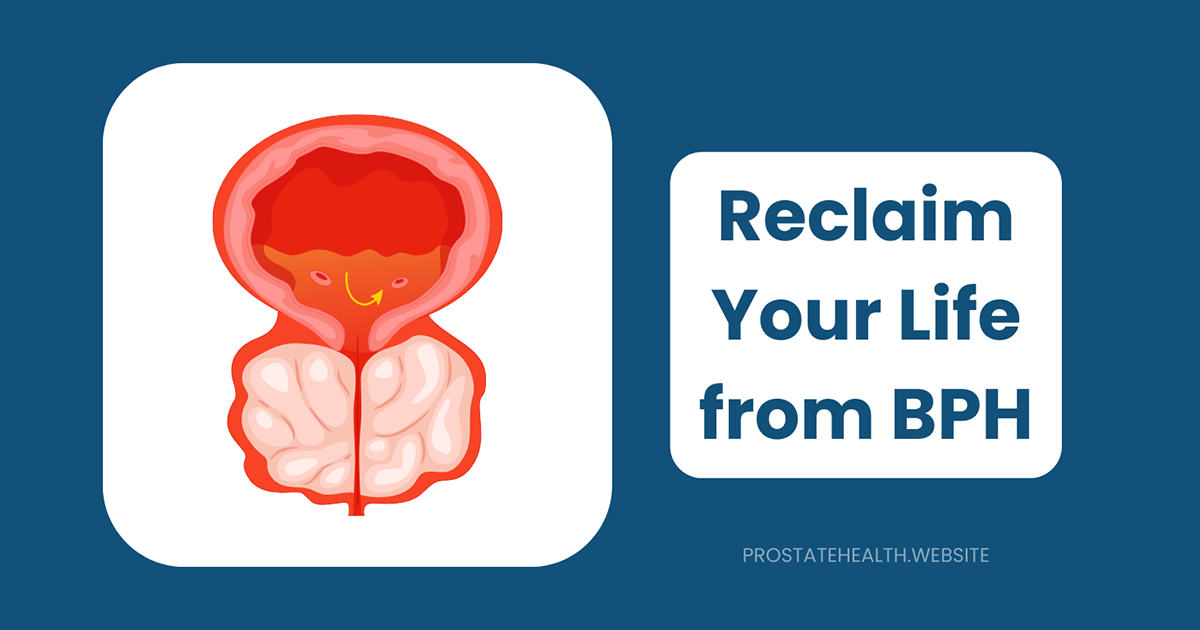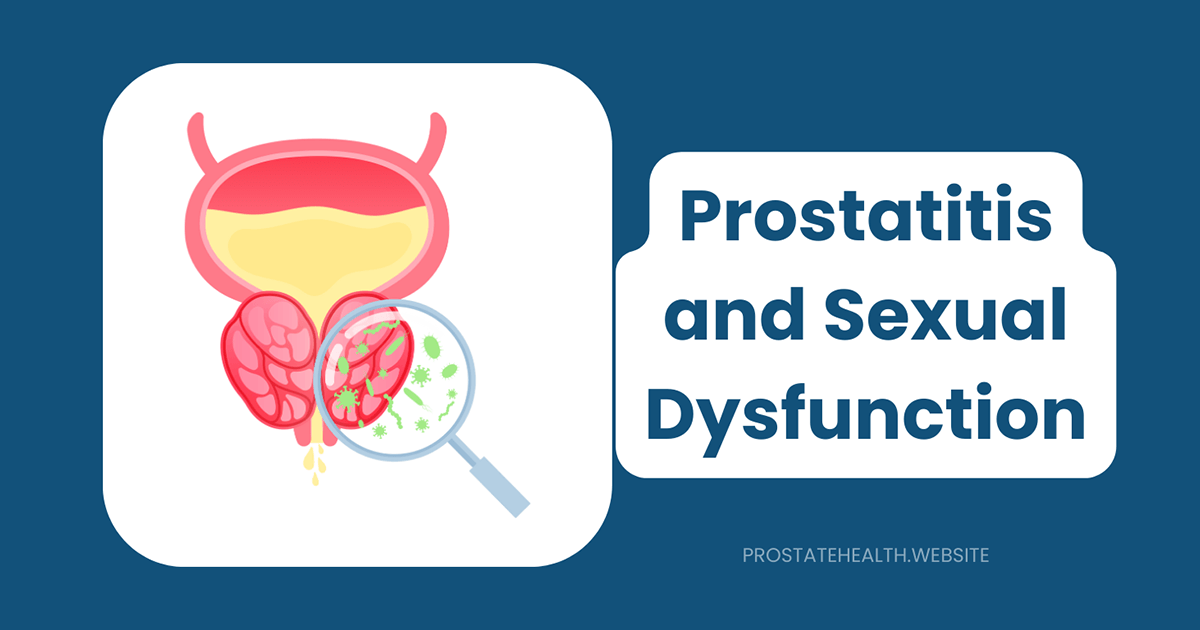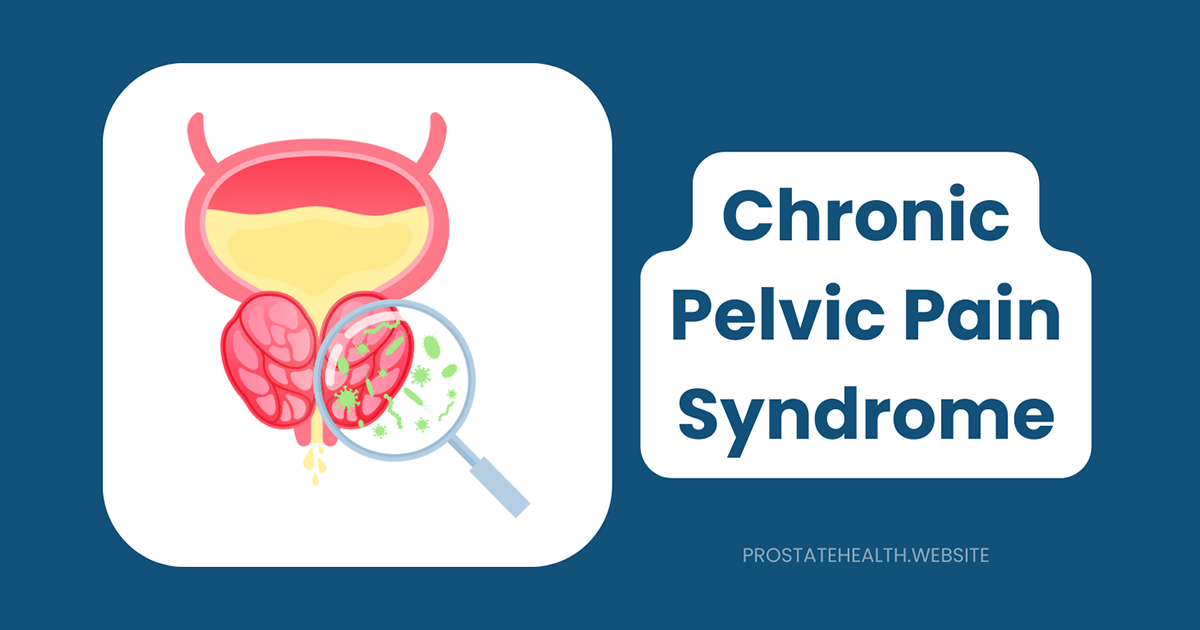The Connection Between Stress and Prostatitis Flare-Ups
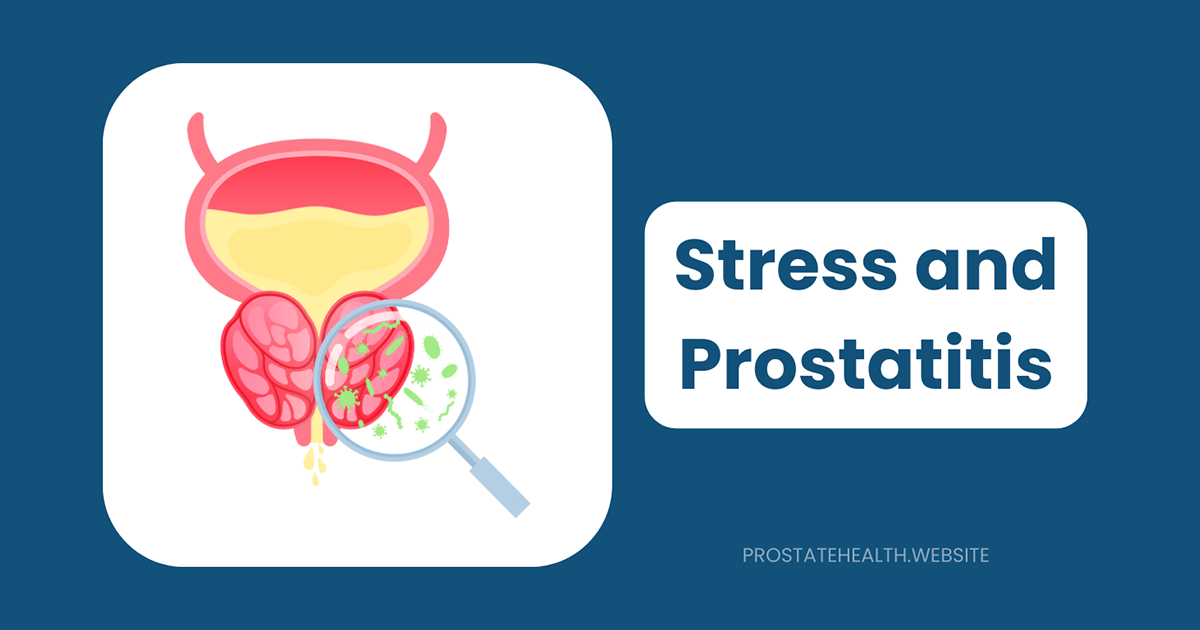
Have you ever noticed that your prostatitis symptoms seem to worsen during particularly stressful periods in your life? Perhaps during a demanding work project, financial difficulties, or relationship challenges? If so, you’re not imagining things—and you’re certainly not alone.
The connection between psychological stress and prostatitis flare-ups is becoming increasingly recognized in medical research, yet many men suffering from this condition remain unaware of how significantly their mental state can influence their physical symptoms.
As someone who has guided countless men through their prostate health journeys, I’ve witnessed firsthand how addressing the stress-prostatitis connection can be transformative. In this comprehensive guide, we’ll explore the science behind this relationship, understand the mechanisms at work, and most importantly, discover practical strategies to break the cycle of stress and prostatitis flare-ups.
Understanding the Stress-Prostatitis Connection
The Evidence Is Clear: Stress Matters
For decades, many doctors dismissed the idea that psychological factors could influence prostatitis, particularly when discussing it with patients. Fortunately, scientific research has now firmly established this connection:
- A landmark Harvard study found that men reporting severe stress at work or home were 1.2 to 1.5 times more likely to report prostatitis compared to those with lower stress levels
- Research from the University of Washington showed that men with higher perceived stress during the six months following prostatitis diagnosis experienced more pain after one year than those with lower stress levels
- Multiple studies have demonstrated that stress management techniques can significantly reduce prostatitis symptoms, sometimes as effectively as certain medications
Dr. James Thompson, urologist at Metropolitan Urology Center, explains: “What we’re seeing in clinical practice aligns perfectly with the research. Men who effectively manage their stress typically experience fewer and less severe prostatitis flare-ups. The mind-body connection is particularly strong with this condition.”
Which Comes First: Stress or Prostatitis?
The relationship between stress and prostatitis is bidirectional, creating what can become a vicious cycle:
- Stress can trigger or worsen prostatitis symptoms: Psychological stress activates physiological responses that can directly influence inflammation and pain sensitivity
- Prostatitis symptoms cause stress: Living with chronic pain, urinary issues, and sexual dysfunction naturally creates psychological distress
- The cycle intensifies: As symptoms worsen, stress increases; as stress increases, symptoms worsen
Understanding this cycle is crucial because it means that interventions targeting either stress or prostatitis symptoms can potentially create positive effects on both fronts.
The Science: How Stress Affects Your Prostate
To truly understand the connection between stress and prostatitis flare-ups, we need to explore the physiological mechanisms at work. While the science is complex, several key pathways have been identified:
The Nervous System Connection
Your autonomic nervous system—which controls involuntary bodily functions—plays a central role:
The Sympathetic Response (“Fight-or-Flight”)
When you experience stress, your sympathetic nervous system activates, causing:
- Increased muscle tension, including in the pelvic floor muscles
- Reduced blood flow to non-essential areas, potentially including the prostate
- Release of stress hormones like adrenaline and cortisol
- Changes in immune function and inflammatory responses
Dr. Sarah Chen, neurologist specializing in chronic pain conditions, notes: “The pelvic floor muscles are particularly responsive to stress. When these muscles tense and spasm due to stress, they can compress nerves and blood vessels in the region, contributing to prostate pain and dysfunction.”
Pelvic Floor Dysfunction
The pelvic floor muscles surround and support the prostate. When chronically tensed due to stress:
- Blood flow to the prostate can be restricted
- Nerve compression can increase pain sensitivity
- Urinary and sexual function can be affected
- Existing inflammation may be exacerbated
The Immune System and Inflammation
Stress significantly impacts your immune system and inflammatory responses:
- Chronic stress suppresses normal immune function: This can potentially allow low-grade infections to persist or develop
- Stress increases inflammatory cytokines: These chemical messengers promote inflammation throughout the body, including in the prostate
- Mast cell activation: Stress can trigger these immune cells to release histamine and other inflammatory compounds in the prostate tissue
- Altered gut microbiome: Stress changes your gut bacteria composition, which can increase systemic inflammation
The Hormonal Pathway
Your endocrine (hormonal) system responds strongly to stress:
- Cortisol dysregulation: Chronic stress can lead to abnormal cortisol patterns, affecting inflammation and pain sensitivity
- HPA axis dysfunction: The hypothalamic-pituitary-adrenal axis, which regulates stress responses, can become dysregulated with chronic stress
- Testosterone fluctuations: Stress can affect testosterone levels, which may influence prostate health
- Neurotransmitter changes: Stress alters levels of serotonin, dopamine, and other neurotransmitters that affect pain perception
The Psychological Factors
Beyond direct physiological effects, psychological factors play important roles:
- Pain catastrophizing: Tendency to focus on and magnify pain sensations
- Hypervigilance: Increased attention to bodily sensations, making pain more noticeable
- Depression and anxiety: Often co-occur with chronic prostatitis and can lower pain thresholds
- Sleep disruption: Stress affects sleep quality, which can worsen pain and inflammation
Identifying Your Stress-Prostatitis Patterns
One of the most empowering steps you can take is to recognize your personal patterns connecting stress and prostatitis symptoms. Here’s how to start:
Common Stress-Prostatitis Patterns
Several distinct patterns emerge in how stress and prostatitis interact:
The Immediate Responder
Some men notice prostatitis symptoms flaring within hours or days of acute stress:
- Symptoms appear shortly after stressful events
- Clear temporal relationship between stress and symptoms
- Quick improvement when the stressful situation resolves
The Cumulative Effect
Others experience a delayed response after prolonged stress:
- Symptoms emerge after weeks of ongoing stress
- May not immediately connect the stress to symptoms due to delay
- Takes longer for symptoms to improve even after stress reduction
The Stress-Tension-Pain Cycle
This pattern involves muscle tension as a mediator:
- Stress leads to increased pelvic floor tension
- Tension creates or worsens prostatitis symptoms
- Pain causes more stress, perpetuating the cycle
The Stress-Behavior-Symptom Connection
Sometimes the link is through stress-induced behaviors:
- Stress leads to poor dietary choices (alcohol, caffeine, inflammatory foods)
- Stress reduces physical activity or sleep quality
- These behavioral changes then trigger prostatitis symptoms
Tracking Your Personal Patterns
To identify your specific patterns, consider keeping a simple journal that tracks:
- Stress levels: Rate your stress daily on a 1-10 scale
- Stressful events: Note significant stressors as they occur
- Prostatitis symptoms: Track pain, urinary symptoms, and other manifestations
- Potential mediators: Record sleep quality, diet, exercise, and medication adherence
After a few weeks, review your journal to identify correlations. This awareness alone can be therapeutic and will guide your stress management strategy.
Breaking the Cycle: Effective Stress Management for Prostatitis Sufferers
Now that we understand the connection, let’s explore practical strategies to manage stress and potentially reduce prostatitis flare-ups:
Mind-Body Approaches with Evidence for Prostatitis
Several mind-body techniques have shown particular promise for men with prostatitis:
Mindfulness Meditation
Research specifically on prostatitis patients has shown benefits from mindfulness practice:
- How it works: Trains attention to focus on present-moment experience without judgment
- Benefits for prostatitis: Reduces pain catastrophizing, improves pain tolerance, decreases stress hormones
- Getting started: Begin with guided meditations specifically for chronic pain (many free apps and online resources are available)
- Time investment: Even 5-10 minutes daily can produce benefits
Michael, 47, shares his experience: “I was skeptical about meditation at first—it seemed too simple. But after practicing consistently for about three weeks, I noticed I was less reactive to my symptoms. The pain was still there sometimes, but it didn’t consume my attention the way it used to.”
Progressive Muscle Relaxation (PMR)
Particularly helpful for those with the stress-tension-pain pattern:
- How it works: Systematically tensing and releasing muscle groups to recognize and release tension
- Benefits for prostatitis: Directly addresses pelvic floor tension, reduces sympathetic activation
- Getting started: Begin with full-body PMR, then add specific pelvic floor relaxation techniques
- Time investment: 15-20 minutes daily, with mini-sessions during the day
Cognitive Behavioral Therapy (CBT)
The gold standard psychological approach for chronic pain conditions:
- How it works: Identifies and changes unhelpful thought patterns that contribute to stress and symptom amplification
- Benefits for prostatitis: Reduces catastrophizing, improves coping strategies, addresses anxiety and depression
- Getting started: Work with a therapist specializing in chronic pain, or try CBT-based self-help resources
- Time investment: Typically weekly sessions for 8-12 weeks, plus daily practice
Physical Approaches to Stress Reduction
Physical activity and body-based techniques can be particularly effective for stress-related prostatitis:
Targeted Exercise
Not all exercise is equal when it comes to stress and prostatitis:
- Low-impact aerobic exercise: Walking, swimming, or cycling (with a prostate-friendly seat) reduces stress hormones without aggravating symptoms
- Yoga: Certain poses can release pelvic tension while promoting relaxation (avoid poses that increase pelvic pressure)
- Tai Chi and Qigong: These gentle movement practices combine physical activity with meditative focus
- Consistency over intensity: Regular, moderate activity is more beneficial than occasional intense workouts
Pelvic Floor Physical Therapy
Often the missing link in treating stress-related prostatitis:
- How it works: Specialized physical therapists identify and treat pelvic floor muscle dysfunction
- Benefits for prostatitis: Directly addresses muscle tension that mediates between stress and symptoms
- What to expect: External and sometimes internal techniques to release trigger points and teach conscious relaxation
- Finding help: Look for physical therapists with specific training in male pelvic health
James, 53, describes his experience: “Pelvic floor physical therapy was transformative for me. I had no idea how much tension I was holding in those muscles, especially during stressful periods. Learning to recognize and release that tension has been the single most effective treatment I’ve found.”
Lifestyle Modifications for Stress and Prostatitis
Several daily habits can significantly impact both stress levels and prostatitis symptoms:
Sleep Optimization
Poor sleep and stress create a vicious cycle that worsens prostatitis:
- Consistent schedule: Go to bed and wake up at the same times daily
- Sleep environment: Keep your bedroom cool, dark, and quiet
- Pre-sleep routine: Develop a relaxing routine to signal your body it’s time to wind down
- Screen management: Avoid blue light from devices at least an hour before bed
- Prostatitis-specific considerations: Empty your bladder before bed, consider timing of fluid intake
Dietary Approaches
What you eat affects both stress and inflammation:
- Anti-inflammatory foods: Emphasize fruits, vegetables, fatty fish, nuts, and olive oil
- Stress-reducing foods: Those rich in magnesium, omega-3s, and antioxidants
- Foods to limit: Common prostatitis triggers include caffeine, alcohol, spicy foods, and artificial sweeteners
- Meal timing: Regular meals help stabilize blood sugar, which affects stress responses
- Hydration: Proper hydration is important, but timing fluid intake to minimize nighttime urination
Social Connection
Relationships strongly buffer against stress effects:
- Quality over quantity: Deep connections with a few people are more protective than many superficial relationships
- Support groups: Connecting with others who understand prostatitis can be particularly beneficial
- Professional help: Consider working with a therapist if stress or prostatitis is affecting your relationships
- Communication skills: Learning to express needs and boundaries reduces relationship stress
Medical Approaches to the Stress-Prostatitis Connection
While lifestyle and mind-body approaches are foundational, medical interventions can also help break the stress-prostatitis cycle:
When to Consider Medication
Several medication classes may help address the stress component of prostatitis:
- Alpha-blockers: May help relax smooth muscle in the prostate and bladder neck
- Low-dose antidepressants: Can address both mood and pain pathways at doses lower than those used for depression
- Anti-anxiety medications: Used selectively and typically short-term for severe stress
- Neuromodulators: Medications like gabapentin that affect nerve signaling
Dr. Robert Williams, integrative urologist, advises: “Medication can be an important part of breaking the stress-prostatitis cycle, particularly when symptoms are severe. However, they work best when combined with the non-pharmaceutical approaches we’ve discussed. The goal is to use medications strategically while building sustainable stress management skills.”
Integrative Medicine Approaches
Several complementary approaches show promise:
- Acupuncture: Research shows benefits for both stress reduction and prostatitis symptoms
- Supplements: Some evidence supports quercetin, pollen extract, and omega-3s for inflammation
- Biofeedback: Uses sensors to provide real-time feedback on physiological stress responses
- Therapeutic massage: Can reduce overall muscle tension and stress hormone levels
Working With Healthcare Providers
Getting the right support is crucial:
- Finding the right urologist: Look for one who acknowledges the stress-prostatitis connection
- Assembling a team: Consider including a mental health professional and pelvic floor physical therapist
- Advocating for yourself: Bring research about the stress connection if your provider seems unaware
- Continuity of care: Regular follow-up with providers who understand your specific pattern
Real-Life Success Stories: Breaking the Cycle
David’s Story: From Skeptic to Advocate
David, 45, experienced prostatitis symptoms for three years before recognizing the stress connection:
“I was completely focused on finding a physical cause and cure. I went through multiple rounds of antibiotics, several supplements, and even considered surgery. It wasn’t until my symptoms dramatically worsened during a particularly stressful work period that I began to consider the stress connection.
My breakthrough came when I started working with both a urologist who understood the mind-body connection and a therapist specializing in chronic pain. I learned mindfulness techniques, began practicing yoga specifically for pelvic tension, and made several lifestyle changes to reduce my overall stress load.
Within three months, my symptoms had improved by about 70%. I still have occasional mild flare-ups, especially during stressful times, but now I have the tools to address them quickly before they escalate. The biggest change is that I no longer fear my symptoms or feel helpless against them.”
Robert’s Approach: The Physical Pathway
Robert, 51, found his solution through addressing the physical manifestation of stress:
“For me, the key was discovering how stress was affecting my pelvic floor muscles. I had no idea these muscles could become chronically tense, or that this tension could cause so many prostate-related symptoms.
Working with a pelvic floor physical therapist was transformative. I learned to identify when I was tensing these muscles in response to stress and how to consciously relax them. I also found that regular swimming and specific stretches helped maintain this awareness and relaxation.
I still experience stress in my life—that’s inevitable—but now it doesn’t automatically translate into prostatitis symptoms because I’ve broken the physical pathway between the two.”
Michael’s Journey: The Comprehensive Approach
Michael, 38, benefited from addressing multiple aspects of the stress-prostatitis connection:
“My recovery came through a comprehensive approach. I worked on stress management through meditation and CBT, addressed the physical component with pelvic floor therapy, made dietary changes to reduce inflammation, and temporarily used an alpha-blocker to help break the cycle.
What I’ve learned is that prostatitis—at least in my case—isn’t just one thing with one cause. It’s a complex condition that responds best to a multi-faceted approach. Stress was definitely a major trigger for me, but addressing it effectively meant looking at how that stress was affecting me physically, emotionally, and behaviorally.
The journey wasn’t quick or linear, but each positive change built on the others. Today, I’m not ‘cured’ in the traditional sense, but I have the knowledge and tools to manage both my stress and my symptoms effectively.”
Creating Your Personal Stress-Prostatitis Management Plan
Based on the science and success stories we’ve explored, here’s a framework for developing your own personalized approach:
Step 1: Assessment and Awareness
Begin by understanding your specific patterns:
- Track stress levels and symptoms to identify correlations
- Recognize your personal stress triggers
- Identify which stress management techniques resonate with you
- Consider which aspects of the stress-prostatitis cycle are most relevant in your case
Step 2: Build Your Foundation
Implement these core strategies that benefit almost everyone:
- Daily mindfulness practice (even 5-10 minutes)
- Regular, gentle physical activity
- Basic sleep hygiene improvements
- Anti-inflammatory dietary principles
- Social connection and support
Step 3: Add Targeted Interventions
Based on your specific patterns, add more specialized approaches:
- If muscle tension is prominent: Prioritize pelvic floor physical therapy and relaxation techniques
- If anxiety or catastrophizing is significant: Consider CBT or working with a therapist
- If inflammation seems to be a key mediator: Focus more on anti-inflammatory diet and supplements
- If sleep disruption is a major factor: Implement more comprehensive sleep optimization
Step 4: Consider Medical Support
Work with healthcare providers to explore:
- Appropriate diagnostic testing to rule out other conditions
- Medications that might help break the cycle
- Complementary approaches like acupuncture or biofeedback
- Specialized programs for chronic pain and stress management
Step 5: Refine and Maintain
Treat this as an ongoing process:
- Continue tracking to identify what works best for you
- Be prepared for setbacks and have a plan for flare-ups
- Gradually shift focus from symptom management to overall wellbeing
- Share your experiences to help others (when appropriate)
Conclusion: Empowerment Through Understanding
The connection between stress and prostatitis represents both a challenge and an opportunity. While it adds complexity to the condition, it also opens up additional avenues for treatment and self-management that many men find empowering.
Understanding that your mind and body are inextricably connected—that your thoughts, emotions, and physical symptoms influence each other in meaningful ways—can transform your approach to prostatitis. Rather than feeling helpless against unpredictable symptoms, you can take active steps to influence the course of your condition.
The journey to managing stress-related prostatitis is rarely linear, and what works best varies between individuals. Patience, persistence, and a willingness to try different approaches are essential. But as the research and success stories demonstrate, many men do find significant relief when they address the stress component of their prostatitis effectively.
Remember that seeking help for the psychological aspects of prostatitis isn’t a sign that your symptoms are “all in your head” or not “real.” Rather, it’s a recognition of the sophisticated interplay between mind and body that modern medicine increasingly confirms.
By addressing both the physical and psychological dimensions of prostatitis, you give yourself the best chance of breaking the cycle and reclaiming your quality of life.
Frequently Asked Questions About Stress and Prostatitis
While stress alone may not initiate prostatitis in most cases, research strongly suggests it can trigger flare-ups in those predisposed to the condition. Stress appears to be a particularly significant factor in chronic prostatitis/chronic pelvic pain syndrome (CP/CPPS), which accounts for about 90% of prostatitis cases.
The timeline varies between individuals. Some men report symptom flares within hours of acute stress, while others notice a pattern of symptoms emerging after days or weeks of cumulative stress. Tracking your personal patterns can help you understand your typical timeline.
For some men, effective stress management leads to complete or near-complete resolution of symptoms. For others, it significantly reduces the frequency and severity of flare-ups without eliminating them entirely. The impact depends on how significant a role stress plays in your specific case and whether other factors are also contributing.
Some stress management techniques, like deep breathing and progressive muscle relaxation, can provide immediate relief during flare-ups. However, more substantial and lasting benefits typically emerge after 4-8 weeks of consistent practice. The neurological and immunological changes that help break the stress-prostatitis cycle take time to develop.
Stress management works best as part of a comprehensive approach rather than a replacement for appropriate medical care. For bacterial prostatitis, antibiotics remain essential. For CP/CPPS, a multimodal approach that includes both stress management and appropriate medical interventions typically yields the best results.

